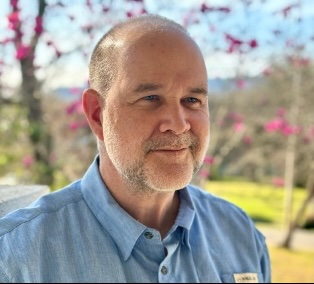The Challenging Beatitudes
OPINION —
The Beatitudes are not spiritual fast food. As with most of the Scripture, they are not well suited to our drive-through, microwave mentality. Rather, they should be thought of as a holiday feast to be lingered over and luxuriated up-on. And, as with such celebrations, they are something to be cherished, re-membered and returned to on a regular basis.
When we return to them, we find illumination. It is not the seven steps to this-or-that type of trendy, artificial light that burns bright on the bestseller list for a week or two and then languishes in the dark recesses of the discount table. It is a genuine spiritual radiance that consistently quells the darkness in our lives. We need this light because the world most of us live in tends to be dominated by hazy attitudes and murky thinking. Not so in the Beatitudes. Each of them is like a sunburst piercing through the cloud cover of our lives, calling us to something grander, nobler and counterculture. They are not interested in why we are the way we are; their focus is to prod us to ask ourselves why we could not be something more than what we are.
The Beatitudes are about being. Jesus did not pronounce a blessing on those who do pure in heart or poor in spirit — heaven’s blessing is on those who are these things. Just as you can talk without doing, you can do without being (as in “This job is not who I am, it’s just what I do”).
The Beatitudes are about being in the same way that marriage or parenting call us into being. When marriage or parenting are successful, it is because the people involved realized that their world had changed, and they could no longer retain their old mindset and lifestyle if they wanted to make a successful transition. They made the decision to embrace this and become a husband, wife, father, or mother. At this point, it was no longer something they did, it became what they were. The kingdom of God will be an impossibility for us as long as we insist on retaining our old mindset and lifestyle. We will be trying to put new wine in old wineskins. If faith is to be real, it must be more than something we do, it must be who we are.
The journey to which the Beatitudes call us starts in the heart when we em-brace the revolutionary truths of the kingdom of God. These truths are presented as paradoxes. This should not surprise us because living in the world as a citizen of heaven is itself a paradox. Consequently, the idea that mourning is blessed, the meek inherit, the poor are rich, are all perfectly at home in a kingdom founded upon the principle that death brings life, where we walk by faith in a sight-oriented world and where we are not to be overcome by evil but to overcome evil with good.
In his gospel, Matthew places Jesus’ teaching about His disciples being the salt of the earth and the light of the world immediately after the Beatitudes. This suggests that as we live out the Beatitudes, we become salt and light to the world around us. If we settle for something less as our standard of character and conduct, our witness will be equally diminished.
When Thoreau was jailed for refusing to pay a poll tax, Emerson came to visit him. He looked through the bars and asked Thoreau what he was doing in there. Thoreau’s response was to ask Emerson what he was doing out there. In the same way, it’s a real temptation for us to ask how the Beatitudes fit into our twenty-first century lives — how are they relevant to us? But that is the wrong question to ask. It is to miss the point. The real question we should ask is—how do our lives fit into the Beatitudes?
Find more of Bruce’s writings at his website: a-taste-of-grace-with-bruce-green.com.

